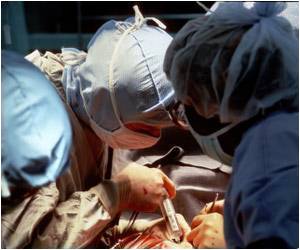Patients in low-income countries who had surgery are more likely to develop an infection, as they do not respond to antibiotics due to drug-resistant bacteria.

‘Low-income countries are at a higher risk of developing surgical infections than middle-or high-income countries.’





The findings shed light on a link between antibiotic use and infection and highlight an urgent need to tackle surgical infection in low income nations, scientists say.Infection at the site of a surgical wound is a complication that prolongs recovery times for patients and can be fatal. Until now, the extent of the problem in low income countries was unknown.
To address this, researchers looked at hospital records from 66 low, middle and high income countries for more than 12,000 patients undergoing surgery on the digestive system.
Patients in low income countries were 60 percent more likely to have an infection in the weeks following an operation compared with high and middle income countries.
Those who developed a wound infection were more likely to die, although the infection was not necessarily the cause of death. Infected patients were also found to stay in hospital three times longer.
Advertisement
The research was led from the Universities of Edinburgh, Birmingham, and Warwick as part of GlobalSurg Collaborative, an international network of doctors who gather healthcare data by recruiting healthcare centres through social media.
Advertisement
Professor Dion Morton, of the University of Birmingham's Institute of Cancer and Genomic Sciences, said: "Countries with a low Human Development Index carry a disproportionately greater burden of surgical infections than countries with a middle or high Human Development Index.
"In view of World Health Organisation recommendations on measures for surgical site infection prevention that highlight the absence of high-quality evidence for interventional research, urgent, pragmatic, randomised trials are needed to assess measures aiming to reduce this preventable complication."
Dr Ewen Harrison, Clinical Senior Lecturer and Honorary Consultant Surgeon at the University of Edinburgh, who led the research said: "Our study shows that low income countries carry a disproportionately high burden of infections linked to surgery.
"We have also identified a potential link between these infections and antibiotic resistance. This is a major healthcare concern worldwide and this link should be investigated further."
Source-Eurekalert







